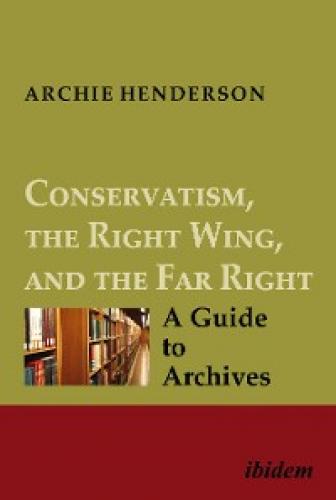Description: The collection includes numerous documents published by the National Socialist White People's Party. It also includes correspondence between an unidentified member of the library staff concerning a subscription to the organization's newsletter.
Websites with information:
http://libcat.cofc.edu/record=b1439504
http://153.9.241.200/wordpress/explore-our-collections/manuscript-collections/manuscripts-collections-a-z/
http://speccoll.cofc.edu/explore-our-collections/manuscript-collections/manuscripts-collections-a-z/
[0622a] College of Charleston Library vertical file on The Southern Libertarian Messenger, 1981-1983, Mss 0034-088
Location: Special Collections—Manuscripts, Marlene and Nathan Addlestone Library, College of Charleston Libraries, 66 George Street, Charleston, South Carolina 29424
Description: The collection consists of six issues of The Southern Libertarian Messenger, a Libertarian Party newsletter published in Florence, South Carolina, beginning in 1972 by Quality Education, Inc. and John Harllee. The file includes the January 1981, February 1981, March 1981, April 1981, August 1983, and September 1983 issues. The issues feature political opinions and official Libertarian Party news for the Libertarian Party of South Carolina.
Websites with information:
http://speccoll.cofc.edu/explore-our-collections/manuscript-collections/manuscripts-collections-a-z/
http://libcat.cofc.edu/record=b1458980
[0622b] College Republican National Committee Records, 1967-1974, Coll. 85009
Location: Hoover Institution Archives, Stanford University, Stanford, California 94305-6010
Description: Correspondence, memoranda, minutes, financial records, campaign material, and printed matter, relating to student involvement in Republican political activity. Files on the Republican National Committee.
Websites with information:
https://beta.worldcat.org/archivegrid/collection/data/754872160
http://www.worldcat.org/title/college-republican-national-committee-records-1967-1974/oclc/754872160
Finding aid:
http://www.oac.cdlib.org/findaid/ark:/13030/tf1779n4px/entire_text/
[0623] Charles Wallace Collins papers, 1915-1972 (bulk 1925-1970), Coll. 86-127
Location: Special Collections, University of Maryland Libraries, Hornbake Library, College Park, MD 20742
Description: Charles Wallace Collins (1879-1964) was a lawyer, writer, and librarian. He wrote several books and pamphlets expressing his views supporting "states' rights" and segregation. His book Whither Solid South? a pro-segregation treatise published in 1947, rallied the Dixiecrat Party in the presidential election of 1948. Other significant works included a pamphlet titled "The South Must Not Surrender" (1948), and The Race Integration Cases (1954). The papers consist of correspondence, clippings, essays, articles, pamphlets, and other publications generated or collected by Collins and his wife, Sue Spencer Collins. Series 2: Writings, 1921-1957, contains clippings on state's rights and segregation, 1948-1951; pieces by CWC on civil rights, states's rights; documents on the United Nations, 1949-1953; pieces by CWC on segregation, state's rights, political parties, and democracy, 1949-1954; pamphlets on integration and civil rights, 1950-1954; Henry Regnery Company, Publishers-correspondence, 1952-1953; correspondence and writing on segregation, 1953-1954; and Whither Solid South?—Drafts.
Finding aid:
http://hdl.handle.net/1903.1/1724
[0624] Seward Collins Papers, 1918-1952 (bulk dates 1927-1937), YCAL MSS 12
Location: Beinecke Rare Book and Manuscript Library, Yale University, P. O. Box 208240, New Haven, CT 06520-8240
Description: Seward Bishop Collins (1899-1952) was an American editor and publisher. In 1928 Collins, who had bought The Bookman the previous year, came under the influence of Irving Babbitt and the other leading humanist author of the day, Paul Elmer More. Around the same time, Collins's politics changed from leftist to ultra-conservative and, in certain aspects, pro-fascist, and his new philosophical and political views became more and more evident in the pages of The Bookman. In April 1933 The Bookman was succeeded by The American Review. This new monthly became a vehicle to publish the views of the revolutionary or conservative right, as Collins sought to present an Americanized version of fascism as a solution to the politically troubled 1930s. The journal was devoted to contemporary American economics, politics, philosophy, and literature, and for a little over four years served as a major forum for several "conservative-traditionalist" movements, notably the Humanists (Irving Babbitt and Paul Elmer More), the Neo-Scholastics (in Collins' terminology, this would include T. S. Eliot and Wyndham Lewis), the Distributists (G. K. Chesterton, Hilaire Belloc, and A. J. Penty), the Monarchists (Hoffman Nickerson and Ralph Adams Cram), and the Agrarians (Donald Davidson and numerous others). The papers contain correspondence, subject files, business papers, and other papers documenting Collins's editorship of The Bookman and The American Review. Correspondence with Irving Babbitt, Hilaire Belloc, William E. Borah, John Chamberlain, G. K. Chesterton, Ralph Adams Cram, Donald Davidson, Max Eastman, T. S. Eliot, Norman Foerster, Wyndham Lewis, J. B. Matthews, Paul Elmer More, Hoffman Nickerson, Ezra Pound, Porter Sargent, Robert Shafer, Lothrop Stoddard, and Dorothy Thompson. Subject files on Irving Babbitt, Hilaire Belloc, John R. Chamberlain, G. K. Chesterton, Donald Davidson, Distributionism, T. S. Eliot, Fascism, Griebl Nazi Spy Case [Dr. Ignatz T. Griebl], and Paul Elmer More.
References:
Seward Collins, "Monarch as Alternative," American Review (Apr. 1933), pp. 22-27, reprinted in Conservatism in America since 1930: A Reader, edited by Gregory L. Schneider (New York and London, New York University Press [2003]), pp. 16-28, http://www.wpia.uni.lodz.pl/cms/pliki_upload/MX-5001N_20110308_154022_Compressed.pdf; Albert E. Stone, Jr., "Seward Collins and the American Review: Experiment in Pro-Fascism, 1933-37," American Quarterly 12 (Spring 1960): 3-19; Edward S. Shapiro, "American Conservative Intellectuals, the 1930's, and the Crisis of Ideology," Modern Age, Vol. 23, No. 4 (Fall 1979), pp. 370-380, https://isistatic.org/journal-archive/ma/23_04/shapiro.pdf; Mark Royden Winchell, Where No Flag Flies: Donald Davidson & the Southern Resistance (Columbia and London, University of Missouri Press [2000]); Michael Jay Tucker, And Then They Loved Him: Seward Collins & the Chimera of an American Fascism (Peter Lang, 2006).
Finding aid:
http://hdl.handle.net/10079/fa/beinecke.collins
http://drs.library.yale.edu/fedora/get/beinecke:collins/PDF
[0625] William M. Colmer Papers, 1933-1973, Coll. M24
Location: Special Collections, McCain Library and Archives, The University of Southern Mississippi, 118 College Drive #5148, Hattiesburg, MS 39406-5148
Description: Colmer (1890-1980) was elected to his first term in the U.S. House of Representatives in 1933. Although he entered the Congress as a Franklin D. Roosevelt New Dealer and remained a life-long member of the Democratic Party, he frequently supported Republican candidates and his political philosophy evolved toward conservatism. Correspondence, legislative files, speeches, newsletters, photographs, motion picture film, newspaper clippings, scrapbooks and artifacts. Correspondence from James F. Byrnes, Senator Pat McCarran, Dorothy Thompson, and Ex-Senator Wheeler. Statement on the Supreme Court's school segregation decision, May 17, 1954. Congressional Record copy of the Southern Manifesto called "Statement of Constitutional Principles," etcetera); 1954, 1956 (Manila envelope with signatures on second Southern Manifesto called "Warning of Grave Danger" - July 13, 1956 [online at http://clio.lib.olemiss.edu/cdm/ref/collection/JWS_race/id/2054 and at https://library.cqpress.com/cqalmanac/document.php?id=
cqal56-1349403]); 1954, 1953-55. Files on Anti-Communist Legislation, Anti-Lynch Bill, Anti-Poll Tax Bill, Senator Bilbo, Citation of Joseph P. Kamp, August 31, 1950,
